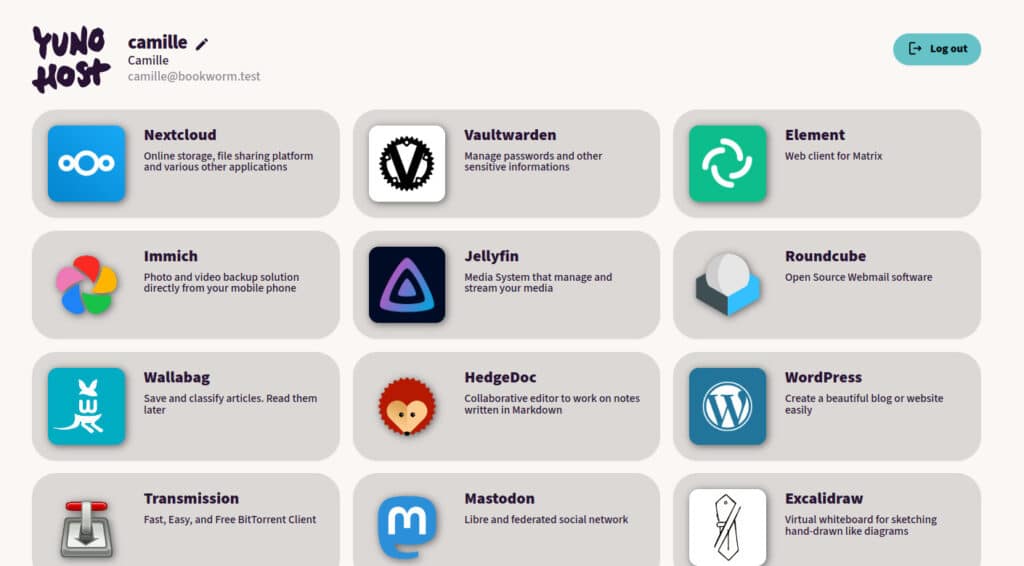As concerns about online privacy and digital independence grow, YunoHost emerges as a key tool for those looking to manage their own cloud services without relying on third-party providers.
This Debian-based system allows users to install and manage digital applications on private servers effortlessly, without requiring advanced system administration skills. With YunoHost, individuals and small organizations can take control of their digital infrastructure with greater autonomy and security.
A Personal Server with Multiple Applications
YunoHost is designed to simplify self-hosting, providing an intuitive interface that enables the installation of various applications with just a few clicks. From cloud storage and communication platforms to content management systems and collaborative tools, the platform allows users to create a digital ecosystem tailored to their needs.
Some of the most popular applications available include Nextcloud, WordPress, Mastodon, OnlyOffice, and Jitsi Meet, all of which enhance privacy and data control.
An Alternative for Individuals and Small Organizations
YunoHost is particularly useful for individuals looking for an alternative to mainstream cloud services and for small organizations that need digital tools without depending on commercial platforms.
Key Uses of YunoHost:
- For personal users: Manage files, contacts, calendars, email accounts, and alternative social networks without intermediaries.
- For associations and collectives: Facilitate collaboration with shared workspaces, internal messaging platforms, and discussion forums.
- For small businesses: Host websites, securely manage documents, and use survey or accounting tools.
Installation and Setup
YunoHost’s installation process is designed to be accessible to all users. The system can be installed on a cloud-based VPS, a repurposed old computer, or a Raspberry Pi.
Once the operating system is installed, YunoHost guides users through the initial configuration, including setting up an admin account, assigning a domain, and configuring basic security settings.
From there, users can easily install applications from the catalog, perform backups, and manage access permissions through the web interface.
Advantages and Challenges
The main advantages of YunoHost include its ease of use, open-source nature, and the ability to self-host a server without requiring extensive technical expertise.
Additionally, the platform promotes a decentralized internet model, reducing reliance on major tech corporations and fostering more sustainable digital solutions.
However, self-hosting also presents some challenges. The initial setup may require network adjustments, and users must handle updates and security measures on their own. While YunoHost is a great solution for small organizations, it is not intended for high-traffic projects that require more robust infrastructure.
A Step Toward Digital Sovereignty
The rise of platforms like YunoHost reflects a growing trend toward decentralization and data control in the digital space. With a focus on privacy and accessibility, YunoHost provides a practical alternative for those who want to manage their own digital ecosystem without sacrificing ease of use.
As trust in third-party services continues to decline, solutions like YunoHost offer a path toward a more autonomous and secure internet.

